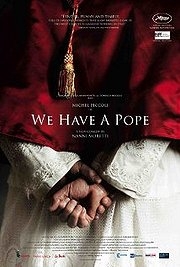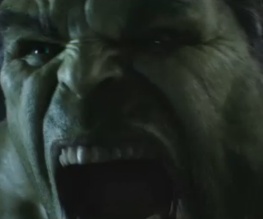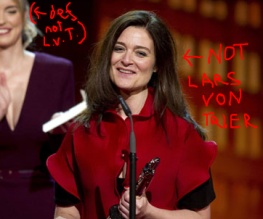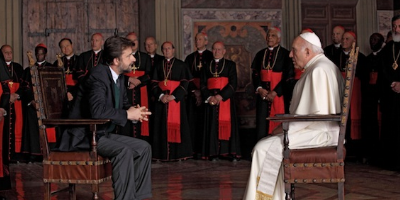We Have A Pope

This is not a comedy. Don’t let anyone tell you it’s a comedy. If they do you must punch them and run away crying. We Have A Pope is an occasionally humourous but fundamentally serious drama which explores the fate of a man who has lost faith in himself, and possibly even in his God.
The film opens with the death of the old pontiff, meaning it’s time to choose a new one. Pope Idol gets under way in the special Pope-choosing room but as the camera goes from one contestant to another, visiting their internal monologues, it turns out no one wants to be elected (What? Really? Doesn’t everyone want to be Pope?). Eventually Cardinal Melville (Piccoli) is chosen but, just as he is about to address the crowd in St Peter’s Square, he is struck with stage fright and cannot show his face.
The Vatican goes into panic mode and calls in a psychotherapist (played by Moretti himself which is pretty vain, if you ask me). Moretti’s character is unable to get to the root of the problem so Melville is smuggled out of the Vatican to visit another psychotherapist (the wife of Moretti’s character who is – in a little dig at the profession – obsessed with telling people they have a “parental deficit”) and manages to shake his handlers. Back at the Vatican the original psychotherapist (it would help if these characters were named, but whatevs) finds himself effectively imprisoned until the identity of the new Pope has been made public. And so psychotherapist and Pope swap their respective worlds with the former, for some reason, organising a volleyball tournament for the Cardinals whilst Mr Pope roams the streets of, well, Rome.
It’s a strange mix, and I’m not sold on whether it actually works. Certainly, there is a lot of charm in the storyline which follows the psychotherapist bonding with all the old Cardinals (incidentally, the phones at the Italian-Speaking Old Man Actors Agency must have been ringing off the hook during the making of this film. Seriously, there’s so many of them).

There are nice moments such as Moretti’s character sitting a group of the Cardinals down and explaining the difference between sleeping pills and tranquilisers. But this strand ultimately comes across as a lighthearted diversion from Melville’s more interesting storyline, which follows him as he traverses the streets of Rome like a senile grandfather straying from a family picnic.
The idea at the heart of Moretti’s film is a wonderful concept – a Pope on the loose in the real world. Compared to the rigid, baroque grandeur of the Vatican, the modern world is bustling, disordered and noisy, and Melville navigates it with the wide-eyed wonder of a child. But Piccoli’s performance is not limited to just one tone. He talks to himself on the bus, shouts at a shopgirl, and strikes up a friendship with a troupe of actors performing Chekhov. And, as with the psychotherapist’s storyline, Melville’s features many comic touches – such as him absent-mindedly telling a stranger “I have a parental deficit”. But Piccoli exudes such a strong sense of melancholia that it’s hard not to feel sad just seeing him on the screen. Up against this sophisticated, subtle performance, the fate of the imprisoned psychotherapist becomes quickly unimportant.

Ultimately, We Have A Pope is a drama with comedic flourishes that only serve to heighten the film’s strange, sad tone. Melville’s predicament is funny in its way, but as the audience laughs they are also reminded of what they are laughing at: a man nearing the end of his life and totally lost at sea. Moretti handles his subject matter in a tender, dignified fashion and the resulting film is a curious, often funny ode to growing old and losing faith in the modern world.




Recent Comments